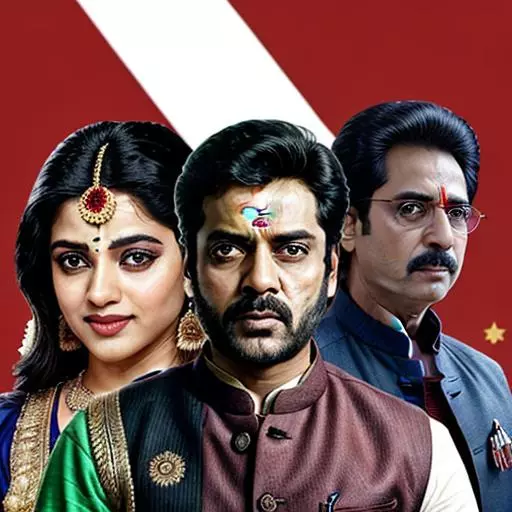Indian politics has a unique relationship with pop culture, and it goes beyond mere entertainment. Bollywood, cricket, music, and other forms of popular culture have played a significant role in shaping public opinion, driving social change, and even influencing political decisions in the country. In this blog, we will explore the profound impact of pop culture on Indian politics and the lessons it offers.
1. Bollywood and Political Narratives
Bollywood and politics in India have often intermingled, with several actors and actresses transitioning into politics. While some have been successful in their political careers, others have struggled. The lesson here is that popularity in the entertainment industry doesn’t necessarily translate into effective governance. It highlights the importance of selecting leaders based on their qualifications, vision, and dedication to public service rather than their star power.
2. Pop Culture as a Tool for Social Change
Indian pop culture has been instrumental in shedding light on critical social issues. Bollywood movies like “Pink” and “Toilet: Ek Prem Katha” have tackled subjects such as consent and sanitation, sparking conversations and influencing policy changes. These instances demonstrate that pop culture can be a powerful tool for raising awareness and driving social change.
3. Celebrity Endorsements and Political Impact
Celebrity endorsements during elections are common in India. Stars from cricket, Bollywood, and other domains often endorse political candidates or parties. However, the lesson here is that voters should critically evaluate endorsements and not blindly follow the choices of their favorite celebrities. It’s crucial to make informed decisions based on the candidate’s qualifications and the party’s policies.
4. The Power of Mass Appeal
Indian politics often relies on mass appeal, and this is where pop culture plays a significant role. Politicians who can connect with the masses, much like a popular Bollywood star, have an advantage. However, the lesson is that leadership should not be based solely on charisma. Substance, competence, and a clear vision for the country are equally important.
5. Youth Engagement and the Digital Age
The youth in India are heavily influenced by pop culture, particularly through social media and digital platforms. Political leaders have recognized the importance of engaging with young voters through these channels. The lesson here is that effective use of digital media is crucial for political success in today’s landscape.
6. Balancing Entertainment and Governance
While entertainment and politics can overlap in India, it’s essential to strike a balance. Leaders should prioritize governance over theatrics, and voters should demand accountability and results. The lesson is that leaders should be evaluated based on their performance in office rather than their ability to entertain.
7. Diverse Cultural Influences
India is a diverse nation with multiple languages, cultures, and traditions. Pop culture has the power to bridge these differences and create a sense of unity. The lesson here is that political leaders should embrace and respect this diversity and work toward inclusive policies that benefit all citizens.
In conclusion, the influence of pop culture on Indian politics is undeniable. While it can be a force for positive change and social awareness, it also poses challenges when it blurs the lines between entertainment and governance. The lessons from Bollywood and beyond remind us of the importance of making informed decisions, prioritizing substance over style, and harnessing the power of pop culture to drive positive change and unity in the diverse tapestry of Indian society.

